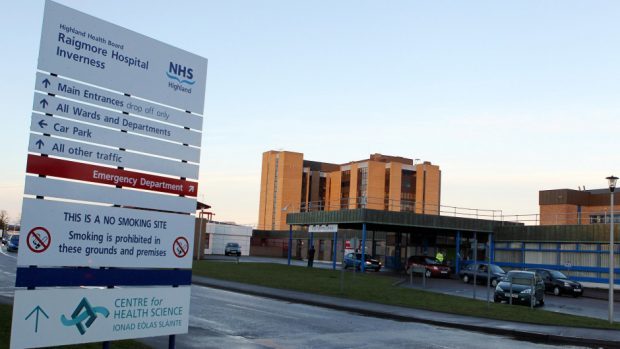NHS Highland has apologised after a woman died from a brain tumour which had been missed by health professionals.
An investigation by the Scottish Public Services Ombudsman (SPSO) found several failings in the authority’s handling of the case.
NHS Highland said it was “truly sorry” and would be writing to the woman’s family to offer its “sincere apologies”.
The woman, who had physical disabilities, learning difficulties, autism, chronic fatigue syndrome and asthma, first complained of headaches in December 2013.
She had surgery to remove a nasal ulcer in February 2014, and a CT scan carried out in July showed no abnormality of her sinuses.
From July 30, 2014 onwards, the woman, only referred to as Ms A, went to her medical practice on a number of occasions complaining of vomiting and headaches.
At about that time, Ms A’s mother contacted NHS 24 with concerns about these symptoms and she was seen four times in August that year. The medical practice also prepared a referral letter to neurology.
She was admitted to Raigmore Hospital in Inverness with abdominal pain on August 12, 2014, and she was diagnosed with occipital nerve compression.
After being discharged from hospital, Ms A visited her GP with the same symptoms and had a “shaking episode” and was given an appointment for an MRI scan on September 8, but she died at home on September 2.
A post-mortem examination found the cause of death was a haemangioblastoma – a tumour of the central nervous system within the brain.
One of the ombudsman’s advisers, a GP, found the practice failed to recognise the significance of “red flag signs” that could have indicated a brain tumour and the need for urgent referral from July 30, 2014 onwards.
Another adviser, a neurosurgeon, said there is “no doubt that if the tumour had been discovered in July or early August, it would have been operable.”
An NHS Highland spokesman said: “We are truly sorry for the standards in the care and treatment provided to this patient and will be writing to the family offering our sincere apologies.
“We accept the findings of the report and it has been shared with staff and senior managers. We will also be conducting a significant adverse event review, which will be chaired by a senior doctor.”
